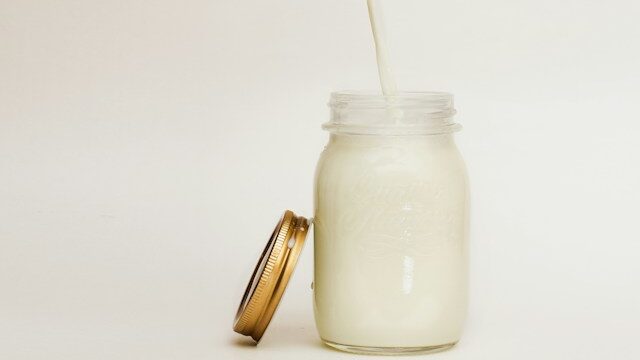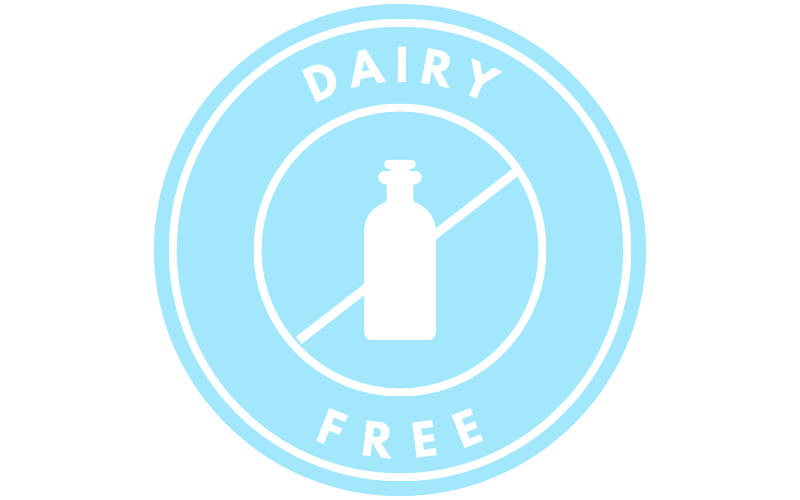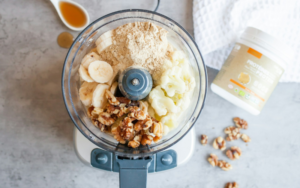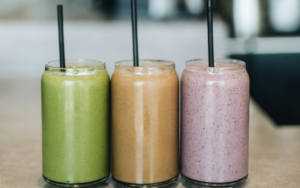In recent years, dairy-free protein powders have surged in popularity. With more people opting for plant-based diets and others avoiding dairy due to allergies or intolerance, the demand for dairy-free protein options has never been higher. These powders are no longer just a niche product but a mainstream nutritional supplement that caters to a variety of dietary needs and preferences.
Key Takeaways:
- Dairy-Free Protein Powder: A healthy, ethical alternative to traditional protein supplements.
- Nutritional Benefits: Packed with essential amino acids and often environmentally friendly.
- Wide Variety: Available in various types to suit different dietary needs.
Table of Contents
Understanding Dairy-Free Protein Powder
Understanding the distinction between these types of protein powders can help you make an informed decision that aligns with your dietary needs and preferences.
Whey Protein Powder
- Definition: Whey protein is derived from milk and is a by-product of the cheese-making process.
- Key Characteristics: High in protein and contains all essential amino acids, but it is not suitable for those avoiding dairy.
Lactose-Free Protein Powder
- Definition: Lactose-free protein powders are made from dairy but have the lactose removed.
- Key Characteristics: Suitable for people with lactose intolerance but still contain dairy proteins, making them unsuitable for those following a strict dairy-free or vegan diet.
Non-Dairy Protein Powders
- Definition: Non-dairy protein powders are made from sources other than dairy, such as plants.
- Key Characteristics:
- Plant-Based: Typically vegan and include sources like pea, hemp, rice, and soy.
- Animal-Based: Some non-dairy powders can be made from egg whites or collagen, which are not plant-based but still dairy-free.
- Allergy-Friendly: Often a good choice for those with dairy allergies or sensitivities.
It’s important to read labels carefully, especially with non-dairy protein powders, to ensure they meet your dietary requirements, whether you’re avoiding dairy for health, ethical, or environmental reasons.
For more on Whey Protein vs Plant Based Protein check out the article here.
The Benefits of Going Dairy-Free
Nutritional Advantages
Dairy-free protein powders are rich in essential amino acids and are often easier to digest than their dairy-based counterparts. They cater to those who follow vegan or plant-based diets and those with lactose intolerance or dairy allergies. For more on: Vegan Protein Powder.
Environmental and Ethical Considerations
Opting for plant-based protein powders can have a positive impact on the environment. The production of these powders often requires less water and results in lower greenhouse gas emissions compared to dairy-based protein production.
| Benefit | Description |
|---|---|
| Nutritional Value | High in essential amino acids, low in allergens |
| Environmental Impact | Lower carbon footprint than dairy-based proteins |
| Ethical Choice | Avoids animal-based products, promoting animal welfare |
Daily Protein Requirements and Dairy-Free Diets
Calculating Your Daily Protein Needs
The amount of protein you need depends on your weight and lifestyle. A general guideline from Harvard Health Publishing suggests multiplying your weight in pounds by 0.36 to estimate your daily protein requirement in grams.
Tot calculate your protein needs for you goals you can use a Protein calculator
Meeting Protein Needs Without Dairy
It’s a common misconception that dairy is the only source of high-quality protein. However, many plant-based sources, such as beans, nuts, and seeds, can provide sufficient protein.
Types of Dairy-Free Protein Powders
Dairy-free protein powders come in many forms, each offering unique nutritional benefits.
Understanding the differences between these types can help you select the best option for your health and lifestyle needs.
Here’s a closer look at the most popular types of dairy-free protein powders:
| Type of Protein Powder | Source | Key Characteristics | Ideal For |
|---|---|---|---|
| Pea Protein | Plant-Based (Peas) | High in iron and arginine, supports muscle growth and heart health | Muscle repair, cardiovascular health |
| Hemp Protein | Plant-Based (Hemp Seeds) | Rich in omega-3 fatty acids and fiber, supports heart health and digestion | Essential fatty acids, digestive health |
| Rice Protein | Plant-Based (Rice) | Hypoallergenic, easy to digest | Sensitive stomachs, allergy-prone individuals |
| Soy Protein | Plant-Based (Soy) | Complete protein with all essential amino acids | Balanced amino acid profile, similar to animal proteins |
| Mixed Plant Protein | Plant-Based (Various) | Blends of different plant proteins for a comprehensive amino acid profile | Balanced, complete amino acid spectrum |
| Collagen Protein | Animal-Based (Collagen) | Supports skin, hair, and joint health | Beauty and joint health |
| Egg White Protein | Animal-Based (Egg Whites) | High-quality protein, low in fat and carbohydrates | High-protein, low-carb diets, dairy-free preference |
Each type of dairy-free protein powder offers specific benefits, making it easier for you to choose one that aligns with your dietary preferences and health goals. From supporting muscle growth to enhancing skin health, these powders provide a range of options for supplementing your protein intake without dairy.
Choosing the Right Type for Your Needs
Selecting the right dairy-free protein powder depends on individual dietary preferences and nutritional needs. Some people prefer single-ingredient powders for simplicity, while others opt for blends for a more comprehensive amino acid profile.
How to Use Dairy-Free Protein Powders
Incorporating dairy-free protein powders into your diet can be a simple and effective way to boost your protein intake, especially if you’re following a plant-based or dairy-free lifestyle.

Here are some practical tips to help you make the most of these versatile supplements:
Incorporating into Meals and Snacks
- Smoothies and Shakes: Blend your dairy-free protein powder with fruits, vegetables, and a liquid base like almond milk, coconut water, or even just water for a quick and nutritious smoothie.
- Baking: Add protein powder to your baking recipes for an extra protein boost. It works well in pancakes, muffins, and bread.
- Breakfast Bowls: Stir protein powder into oatmeal or yogurt alternatives for a protein-packed breakfast.
- Snack Bars: Make homemade protein bars or energy balls by mixing protein powder with ingredients like oats, nuts, and honey or a sweetener of your choice.
Adjusting Serving Sizes for Your Needs
- Listen to Your Body: Start with the serving size suggested on the package, but feel free to adjust it according to your protein needs and how your body responds.
- Post-Workout Recovery: Consider a larger serving after intense workouts for muscle recovery.
- Throughout the Day: Use smaller servings as part of your meals or snacks to maintain a consistent protein intake.
Balancing with Whole Foods
- Diversity in Diet: Remember that protein powders are supplements and should be part of a balanced diet that includes a variety of whole foods.
- Nutritional Balance: Combine protein powders with sources of healthy fats, carbohydrates, vitamins, and minerals for well-rounded nutrition.
Flavor and Texture Considerations
- Flavor Pairing: Choose a flavor that complements your recipes, whether it’s a neutral taste for savory dishes or a flavored option for sweet treats.
- Texture Adjustments: If the powder makes your dish too thick, add more liquid to achieve the desired consistency.
Top Dairy-Free Protein Powder Products
Here’s a look at some leading dairy-free protein powders, known for their quality and nutritional value.
| Rank | Brand | Key Features |
|---|---|---|
| 1 | Elm & Rye Protein Powder | Organic ingredients, versatile, plant-based |
| 2 | Penguin Protein Powder | Unique blend of pea, pumpkin, and banana flour proteins |
| 3 | Orgain Simple Organic Vegan Protein Powder | Simple, clean, organic, essential amino acids |
| 4 | Orgain Organic Vegan Protein Powder | Blend of pea, brown rice, chia seeds, and quinoa proteins |
| 5 | Chocolate Vegan Protein Powder from Isopure | Tasty chocolate flavor, low sugar and calorie content |
| 6 | Garden of Life Vegan Protein Powder | High protein content, organic, non-GMO ingredients |
| 7 | BLESSED Plant Based Vegan Protein Powder | Delicious vanilla flavor, ideal for smoothies and baking |
| 8 | VIVL Nutrients Plant Protein-L Powder Vanilla | Complete protein profile, all 9 essential amino acids |
Conclusion
Dairy-free protein powders offer a versatile, ethical, and often healthier alternative to traditional dairy-based supplements. Whether you’re vegan, lactose intolerant, or simply exploring healthier options, these powders can be an excellent addition to your diet. Remember to choose a powder that aligns with your dietary needs and preferences, and enjoy the variety and nutritional benefits they bring to your life.
Frequently Asked Questions
- Can I replace all my protein intake with dairy-free protein powder?
While dairy-free protein powders are a convenient source of protein, they shouldn’t replace whole foods entirely. It’s important to have a balanced diet that includes a variety of protein sources.
- Are all dairy-free protein powders vegan?
Most dairy-free protein powders are vegan, but it’s important to check the label for any non-vegan ingredients, especially if you’re strictly following a vegan diet.
- How do I know if a dairy-free protein powder is right for me?
Consider your dietary needs, flavor preferences, and any allergies or sensitivities. It’s also a good idea to consult with a healthcare provider, especially if you have specific health concerns



